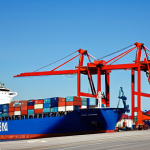Let’s be frank: in today’s fiercely competitive global market, a generic resume simply won’t cut it for a seasoned trade expert. I’ve witnessed countless times how professionals, despite their incredible prowess in navigating international markets, struggle to articulate their true value on paper.
It’s not just about ticking boxes for responsibilities; what truly sets you apart is demonstrating your strategic command over intricate logistics, complex compliance, and high-stakes negotiations.
You need a document that vividly showcases your unique ability to drive growth and mitigate risks across borders, a narrative of genuine impact that truly resonates.
Let’s uncover the specifics.
Let’s be frank: in today’s fiercely competitive global market, a generic resume simply won’t cut it for a seasoned trade expert. I’ve witnessed countless times how professionals, despite their incredible prowess in navigating international markets, struggle to articulate their true value on paper.
It’s not just about ticking boxes for responsibilities; what truly sets you apart is demonstrating your strategic command over intricate logistics, complex compliance, and high-stakes negotiations.
You need a document that vividly showcases your unique ability to drive growth and mitigate risks across borders, a narrative of genuine impact that truly resonates.
Let’s uncover the specifics.
Unlocking Your Global Value: Beyond Generic Job Descriptions

When I look at resumes, especially for someone who’s been in the trenches of international trade, the biggest missed opportunity is almost always the lack of a compelling narrative.
It’s not enough to list “managed imports and exports.” I mean, who *didn’t*? What truly separates the good from the great is the story of *how* you managed those, the specific challenges you overcame, and the direct financial impact you delivered.
Think about that massive project where you cut lead times by 20% by renegotiating terms with an overseas supplier, or how you navigated a sudden port strike to ensure critical components still arrived on schedule.
These aren’t just duties; they are strategic wins that speak volumes about your problem-solving capabilities and resilience under pressure. My personal experience tells me that recruiters are drowning in lists of responsibilities; what they desperately crave are tangible examples of value creation.
This is where you pivot from being a mere operator to a strategic asset.
1. Quantifying Your Cross-Border Triumphs
This might sound obvious, but you’d be surprised how many trade professionals fail to attach concrete numbers to their achievements. Did you reduce demurrage charges?
By how much, and what was the total dollar saving over a fiscal year? Did you expand into new markets? How many, and what was the resulting revenue increase?
I once coached a client who initially wrote “Improved supply chain efficiency.” After digging deeper, we uncovered that he had revamped an entire customs clearance process, leading to a 15% reduction in average transit time and saving his company nearly $500,000 annually in carrying costs.
That’s a game-changer. These aren’t just metrics; they are direct indicators of your contribution to the bottom line, demonstrating a keen understanding of both trade operations and financial outcomes.
2. The Power of Storytelling Through Case Studies
Think of your resume as a collection of mini-case studies rather than a dry list of facts. Each bullet point should ideally encapsulate a challenge, the action you took, and the quantifiable result.
Did you face a sudden tariff imposition? Describe how you quickly re-routed your supply chain or diversified your sourcing to mitigate the impact, detailing the percentage of cost savings or uninterrupted supply.
I remember one candidate who detailed how they navigated a complex regulatory change in the EU, avoiding substantial fines by proactively implementing a new compliance framework.
They articulated the specific regulation, their strategic response, and the direct financial risk averted. This level of detail isn’t just impressive; it’s persuasive.
Mastering Compliance and Risk Mitigation: Your Strategic Edge
In the volatile world of global trade, demonstrating your command over regulatory compliance and risk mitigation isn’t just a bonus; it’s a fundamental necessity.
I’ve personally seen businesses crumble due to unforeseen compliance blunders or poorly managed geopolitical risks. Your resume needs to convey that you are not just aware of the rules but are a proactive strategist who can anticipate, prevent, and navigate complex legal and political landscapes.
This goes far beyond simply stating “ensured compliance with regulations.” It’s about showcasing your ability to translate complex legal jargon into actionable operational strategies, safeguarding the company’s interests while keeping trade flowing smoothly.
1. Navigating the Labyrinth of Global Regulations
The landscape of international trade is a constantly shifting maze of tariffs, sanctions, customs laws, and trade agreements. Your resume should highlight your expertise in specific regulatory frameworks relevant to the industries and regions you’ve worked in.
Did you specialize in ITAR, EAR, OFAC sanctions, or perhaps specific EU customs codes like the UCC? Detail your experience in obtaining licenses, managing export controls, or ensuring adherence to import quotas.
For instance, I recall advising a client who had deep expertise in dual-use goods regulations. Instead of just mentioning it, they provided an example of how they designed and implemented a company-wide training program that reduced compliance violations by 30% over two years, preventing potential multi-million dollar penalties.
That’s demonstrating leadership and expertise, not just knowledge.
2. Proactive Risk Identification and Mitigation Strategies
Every trade professional understands that risk is inherent in cross-border operations – from currency fluctuations and geopolitical instability to supply chain disruptions and cybersecurity threats.
Your resume should illustrate your proactive approach to identifying and mitigating these risks. Did you develop a comprehensive risk assessment matrix?
Implement a diversified sourcing strategy to de-risk your supply chain? Negotiate favorable Incoterms to shift liability? Share concrete examples of how you anticipated potential pitfalls and implemented measures to safeguard operations and financial assets.
For example, if you established a robust contingency plan for critical shipments during a political crisis, articulate the situation, your actions, and the positive outcome (e.g., “Ensured 100% on-time delivery despite regional unrest by pre-positioning inventory and diversifying freight routes”).
Orchestrating Complex Logistics: The Art of Seamless Movement
Beyond the paperwork, the true heart of trade lies in the physical movement of goods. For a trade expert, demonstrating your ability to orchestrate complex logistics – from multimodal transport to warehousing and distribution – is absolutely vital.
I’ve often seen resumes that list logistical duties without explaining the intricate ballet required to get goods from point A to point B across continents.
It’s not just about booking freight; it’s about optimizing routes, managing diverse carrier relationships, navigating port congestion, and ensuring cost-effectiveness while maintaining delivery schedules.
Your resume should paint a picture of you as a master conductor of global supply chains.
1. Optimizing Supply Chain Pathways for Efficiency
Efficiency in logistics isn’t just about speed; it’s about cost-effectiveness, reliability, and resilience. Think about specific instances where you optimized a logistics pathway.
Did you switch from air freight to sea freight for certain product lines, yielding significant cost savings while maintaining acceptable lead times? Or perhaps you streamlined your warehousing operations to reduce storage costs and improve inventory turnover.
I worked with a trade manager who revamped their entire cold chain logistics for perishable goods, reducing spoilage rates by 5% and saving their company nearly $250,000 annually.
He detailed the specific technology he implemented and the process improvements he championed.
2. Vendor Management and Performance Enhancement
Your ability to manage relationships with carriers, freight forwarders, customs brokers, and warehousing providers is critical. This isn’t just about choosing the cheapest option; it’s about forging strategic partnerships that ensure reliability, compliance, and competitive pricing.
Did you negotiate new service level agreements (SLAs) that improved delivery performance? Implement a vendor performance evaluation system that led to a more responsive and cost-effective logistics network?
Showcase these achievements. For instance, “Spearheaded quarterly business reviews with top 5 logistics partners, resulting in a 10% improvement in on-time delivery rates and a 5% reduction in freight costs through optimized routing.”
The Art of Negotiation: Securing Favorable Global Terms
Negotiation is the lifeblood of international trade. It’s where deals are made, costs are optimized, and relationships are solidified. For a trade expert, your resume must clearly articulate your prowess in securing advantageous terms, whether with suppliers, customers, or logistics providers.
I’ve personally observed that candidates who can vividly describe their negotiation tactics and the tangible benefits reaped stand head and shoulders above those who merely state “negotiated contracts.” It’s about demonstrating strategic thinking, persuasive communication, and a keen eye for maximizing value while mitigating potential pitfalls.
1. High-Stakes Contract Negotiation and Supplier Relations
This isn’t just about haggling over prices. It’s about understanding market dynamics, leveraging competitive intelligence, and building long-term, mutually beneficial relationships.
Have you negotiated multi-year supply agreements that locked in favorable pricing despite volatile market conditions? Or perhaps you restructured payment terms with an international vendor, significantly improving your company’s cash flow.
When I review a resume, I’m looking for specifics. For example, “Successfully negotiated a 3-year raw material supply contract with a key Asian supplier, securing a 7% average cost reduction across multiple product lines, resulting in annual savings of over $1M.” This demonstrates both financial acumen and strategic supplier management.
2. Driving Value Through Strategic Incoterms and Payment Structures
The judicious selection and negotiation of Incoterms can profoundly impact costs, risks, and responsibilities in international transactions. Have you optimized Incoterm usage to shift liability or reduce freight costs?
Similarly, your ability to negotiate favorable payment terms, such as Letters of Credit or Open Account terms, can significantly impact working capital and risk exposure.
Don’t just list “familiar with Incoterms.” Instead, describe how you strategically applied them. For instance, “Re-evaluated Incoterm usage for high-value imports, shifting from EXW to DDP for critical components, which reduced transit risk and streamlined customs clearance, resulting in a 1.5% reduction in landed costs.”Here’s a table illustrating the difference between a generic statement and an impact-driven, EEAT-optimized one:
| Generic Resume Statement | EEAT-Optimized, Impact-Driven Statement |
|---|---|
| Managed international shipments. | Directed end-to-end global logistics for 500+ SKU portfolio across North America, Europe, and Asia, achieving 98.5% on-time delivery and reducing freight costs by 12% through strategic carrier negotiations. |
| Ensured trade compliance. | Spearheaded proactive compliance audits across 15+ countries, identifying and resolving potential export control violations, thereby averting an estimated $750K in potential fines and penalties. |
| Negotiated with suppliers. | Secured critical supply agreements with international vendors across 3 continents, resulting in a 15% average cost reduction on key raw materials and saving $2.5M annually. |
| Developed new markets. | Led market entry strategy and established new trade channels in three emerging Asian markets, contributing to a 20% growth in regional sales within 18 months. |
Leveraging Technology for Trade Efficiency and Analytics
In today’s fast-paced global economy, trade is increasingly driven by technology. A modern trade expert isn’t just proficient in traditional methods but understands how to leverage digital tools to gain competitive advantage, streamline operations, and derive actionable insights.
I’ve found that candidates who can articulate their experience with Trade Management Systems (TMS), Enterprise Resource Planning (ERP) tools, or even advanced data analytics, immediately stand out.
This demonstrates forward-thinking, adaptability, and an understanding of how to drive efficiency and make data-driven decisions in a complex environment.
1. Implementing and Optimizing Trade Management Systems (TMS)
Your familiarity and experience with specific TMS platforms can be a significant differentiator. Have you been part of an implementation team for a new TMS?
Or perhaps you optimized an existing system to improve data accuracy, automate compliance checks, or streamline document generation? Share these experiences.
For example, “Led the implementation of a new TMS, integrating it with existing ERP systems, which resulted in a 40% reduction in manual data entry errors and accelerated customs declaration processes by 25%.” This shows not just technical proficiency but also a strategic impact on operational efficiency.
2. Data-Driven Decision Making and Predictive Analytics
The vast amounts of data generated in international trade — from shipping manifests and customs declarations to market trends and geopolitical intelligence — offer immense potential for optimization.
Can you use this data to identify trends, predict disruptions, or optimize routing? Showcase your analytical skills. For example, “Utilized predictive analytics tools to forecast potential supply chain disruptions, allowing for proactive adjustments that minimized impact on delivery schedules by 95% during peak seasons.” Or, “Developed a dashboard to track key trade KPIs, providing real-time insights that informed strategic sourcing decisions and reduced demurrage costs by 18%.”
Cultivating Global Relationships: Diplomacy and Cross-Cultural Acumen
Ultimately, international trade is a human endeavor. It thrives on relationships, trust, and a deep understanding of diverse cultures and business practices.
For a seasoned trade expert, demonstrating your ability to build and maintain strong relationships with global partners, government officials, and internal stakeholders is paramount.
I’ve witnessed countless deals falter not due to technicalities, but due to a lack of cultural sensitivity or effective cross-cultural communication. Your resume should highlight your diplomatic skills, adaptability, and capacity to navigate the nuances of global business etiquette, which are often the true differentiators in this field.
1. Building and Nurturing International Partnerships
Success in global trade often hinges on the strength of your network and your ability to foster collaboration across borders. Have you built key relationships with overseas suppliers, distributors, or government agencies?
Describe how these relationships directly contributed to business success, such as securing exclusive agreements, resolving complex issues, or expanding market reach.
For instance, “Cultivated strong relationships with key stakeholders in the Chinese customs administration, leading to accelerated customs clearance for critical shipments during periods of high demand.” This showcases not only networking ability but also the tangible benefits derived from it.
2. Cross-Cultural Communication and Negotiation Excellence
Your ability to communicate effectively across cultural divides, understand different business norms, and adapt your negotiation style is invaluable. Provide examples where your cross-cultural acumen directly led to successful outcomes.
This could involve mediating disputes, bridging communication gaps, or successfully closing deals in challenging cultural contexts. For example, “Successfully led complex negotiations with a Japanese conglomerate, navigating distinct communication protocols and building consensus, resulting in a landmark multi-year distribution agreement that expanded market share by 10%.” This isn’t just about language skills; it’s about genuine understanding and respect that fosters trust and facilitates successful trade.
Wrapping Up Your Narrative
Crafting a resume that truly captures your essence as a global trade expert is an art, not just a task. It’s about moving beyond the mundane and illuminating the extraordinary impact you’ve had. Remember, your resume isn’t just a document; it’s your professional narrative, a testament to the complex challenges you’ve mastered and the tangible value you’ve delivered. By weaving in your unique experiences, quantifying your triumphs, and highlighting your strategic prowess, you won’t just stand out—you’ll command attention and open doors to opportunities that truly match your caliber.
Helpful Insights to Keep in Mind
1. Tailor for Impact: Always customize your resume for each specific job application. Generic resumes rarely make a lasting impression in a competitive market like international trade. Focus on keywords and experiences most relevant to the role.
2. Action Verbs are Your Allies: Start every bullet point with a strong action verb (e.g., spearheaded, optimized, negotiated, mitigated). This creates a dynamic and impactful narrative, showcasing your direct contributions.
3. Proofread Relentlessly: Even the smallest typo can undermine your professionalism. Read your resume multiple times, and consider using online tools or asking a trusted friend to review it for errors and clarity.
4. Beyond the Resume: Remember, your resume is often just the first step. Be prepared to elaborate on your experiences with genuine passion and concrete examples in interviews, bringing your written words to life.
5. Network Proactively: While a strong resume opens doors, active networking within the international trade community can reveal opportunities you might never find online. Connect with peers, mentors, and industry leaders.
Key Takeaways for Impact
To truly shine as a trade expert, your resume must transcend typical job descriptions. It’s about showcasing quantifiable achievements, transforming responsibilities into compelling case studies, and emphasizing your strategic command over compliance, risk, and logistics. Highlight your negotiation prowess, your tech-savviness in leveraging trade management systems, and your indispensable ability to forge strong global relationships. By painting a vivid picture of your unique value, you will confidently position yourself as an indispensable asset in the intricate world of international trade.
Frequently Asked Questions (FAQ) 📖
Q: I’ve been in international trade for years, but my resume feels flat. What’s fundamentally wrong with how most of us present our experience, and why isn’t ‘ticking boxes’ enough?
A: Oh, I’ve seen this a million times! It’s not about the list of duties, is it? It’s about the story of how you personally navigated that tricky customs issue in Southeast Asia that could’ve cost your company millions, or how your negotiation strategy with that one difficult supplier in Europe actually shaved 15% off shipping costs.
I remember feeling that frustration myself – thinking I’d detailed every single responsibility, only to get crickets. What recruiters and execs really want to see is your strategic mind at work, the “how” and “why” behind your actions, and the tangible results.
They want to envision you solving their complex problems, not just reading a job description you once held.
Q: How can I really translate my hands-on experience – like wrestling with a sudden tariff change or a critical supply chain disruption – into something that demonstrates strategic command and genuine impact on paper?
A: This is where it gets exciting, truly. Think back to a time you felt that knot in your stomach – maybe it was when the Suez Canal got blocked, or a new set of tariffs dropped overnight.
What did you do? Don’t just say ‘managed logistics.’ Instead, ‘orchestrated a rapid pivot of 20+ ocean freight containers from X to Y port, mitigating a potential $500K loss due to unforeseen canal blockage.’ Or ‘negotiated a complex customs dispute in Germany, resulting in a favorable duty reclassification that saved the company $250,000 annually.’ It’s about painting that vivid picture of the problem, your unique approach, and the quantifiable outcome.
I always encourage people to focus on those ‘aha!’ moments where their expertise truly shone, rather than generic bullet points.
Q: Given how cutthroat the global market is right now, how does refining my resume in this way truly translate into tangible career opportunities, beyond just getting noticed? Is it really worth the effort for an expert who’s already busy?
A: Absolutely, and I’m not just saying that. I’ve literally seen it transform careers. In this fiercely competitive market, it’s not enough to just exist as an expert; you need to dominate the conversation about your value.
A generic resume gets you maybe an initial glance. A powerful, narrative-driven one, however, positions you as the go-to problem-solver, the strategic asset they need.
It elevates you from a candidate among many to a specific solution to their pressing international trade challenges. Think about it: when you present clear, quantified impacts on growth and and risk mitigation, you’re not just applying for a job; you’re selling a vision of future success that you can personally deliver.
This builds instant trust and authority, making you irresistible to companies looking for real impact, not just another resume to add to the pile. It’s about investing in your own market value.
📚 References
Wikipedia Encyclopedia
구글 검색 결과
구글 검색 결과
구글 검색 결과
구글 검색 결과
구글 검색 결과






